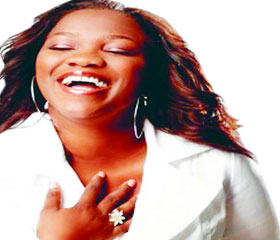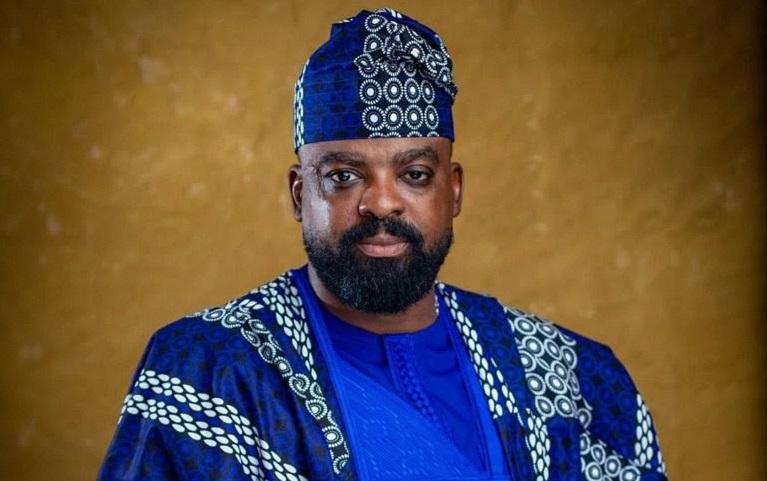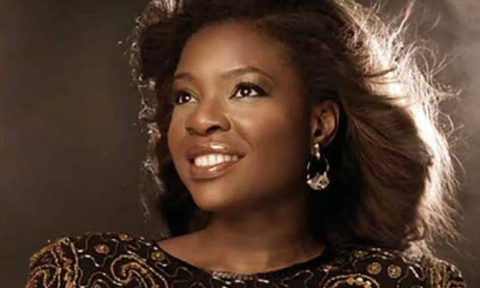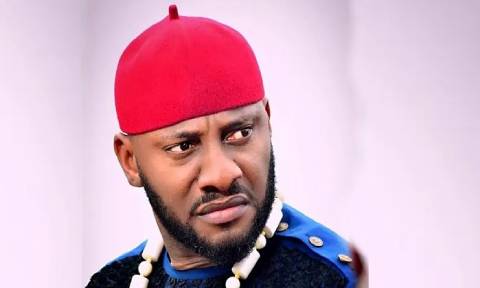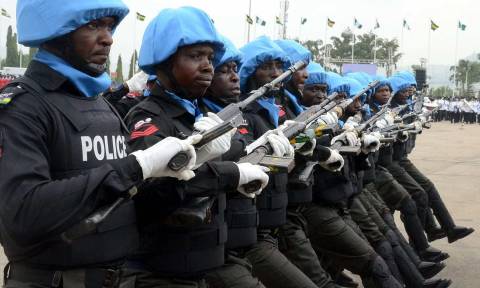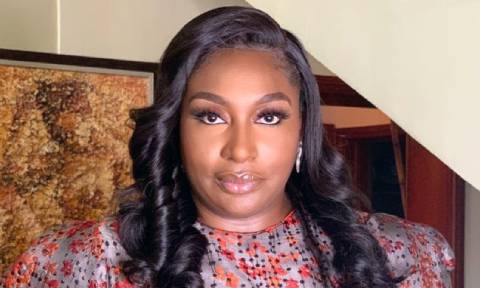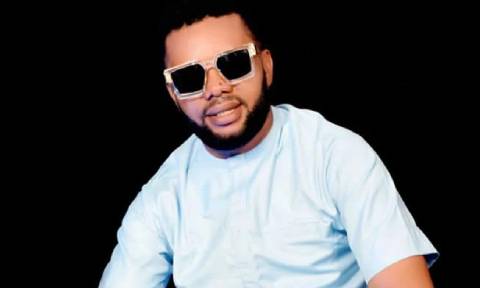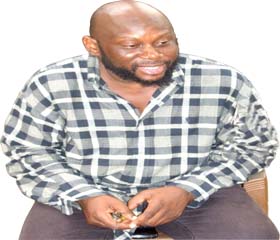
Seyi Siwoku is the Managing Director, and Chief Executive Officer of Jungle films productions with experience in the productions and cinematography spanning over 20 years home and abroad. His experiences have created a reputation for him as making the impossible possible. Seyi started his career as a marine engineer, graduating from John Moore University with a Second-Class Marine Engineers Certificate.
He sailed with the Nigerian Shipping Line and P&O ferries and quit sailing seven years later for films. His works include ‘The Returnees’ and ‘The star mega jam’. He has directed and photographed many commercials, documentaries, and television shows which include Big Brother Africa TV reality show, Gulder ultimate search,among many others. FUNMI SALOME JOHNSON met him at his Ikeja GRA office where he spoke about his career, childhood and vision for the industry.
What has it been like being a producer?
It has its ups and downs. Up is when you get a good job and down is when you have to source for money to do a project and you don’t get the money. It is a life of fun though being a producer.
You are over 20 years in business, what has been the sustaining factor over the years?
Yes, all together, I am over 20 years in business but I am about 10 years old in the Nigerian business environment. The sustaining factor is nothing more than innovation and the little thing we had in terms of equipment. For instance, when we came to Nigeria in 2000, we saw that the lighting equipment was not enough and we decided to invest in the equipment. Later, we also realised that there is also need for manpower too and so it is the equipment and the manpower that is still keeping us in the business.
How are you coping with the epileptic power supply that we have here in Nigeria?
Well, this is Nigeria now. In the 70s, we had light, in the 80s, light started going bit by bit and now we don’t have light any more. I think it is the Nigerian problem.. we have generators and hopefully, I think the people importing generators are selling more generators and I think with the number of generators we have in this country, I don’t think there is going to be light any time soon; it is not me but I am just talking from observation.
Has that not one way or the other affected the over all cost price of your services?
Yes it has. Actually, it has. Imagine that you are doing a job for somebody and you now take a quotation to the person and say generator and everything because that is the first thing they are going to take out and that should be part of the running cost. I could remember one time we were doing one job and we had to edit and the editing took about six days and we practically ran the generator for about 22 to 23 hours a day and in that month alone, we spent about N700,000 on diesel alone and the whole job was about three million plus. So we had to spend some seven hundred thousand that we did not think about for power alone. It is sad but life goes on I guess.
How did you get into all of these?
I am a seaman and I worked for about seven years as a sailor. I just got bored and the only job I could think about is being a film maker, I love photography when I was young and whenever the photographer came to our house to take the family picture and then I decided to develop myself and I did some short courses in Chicago on film making, editing and cinematography and here I am today.
What sparked up your interest for production and movie making; was there anyone of your family members that was into it that got you interested or what?
I had an uncle who was in TV, Tunde Orebiyi who does AIT sports but it was not really that per say but may be a little bit, I just felt that of course, since he was on air, there people who are definitely behind the camera and I decided to one of the things behind the camera.
With your experience, home and abroad, what do you think are the lapses in the productions and show business in Nigeria?
Number one is content and number two is using the wrong equipment for the right job or using the right equipment for the wrong job because that happens a lot in Nigeria. There various cameras for different purposes and same goes for other equipment but some do not know that there are some cameras that are meant for specific jobs. I think there is also the need for people to get more training and manpower. Everybody wants to be Jack of all trade; they do the lighting, they do the camera but in the western world, things are not done that way. For instance, a sound man is like a doctor on its own, this is what he does for a living unlike the way they operate here in Nigeria where a man will do everything. It is not supposed to be that way at all and that is why they have professional courses. You should stick to one and be versatile in whatever you are doing not the jack of all trade system that they operate in, in Nigeria.
Can you share some of the challenges you faced when you newly came to Nigeria?
One of my jobs that I did, a commercial that I did for Nestle foods, it required a lot of light and we could not get that many light in the whole of Nigeria. We had to take light from eight places and the lights were not exactly what is supposed to be used for that type of job but we just had to manage. And again, when you come at first, they think that you are trying to impose your own opinion especially when you tell them that this is the way it is done; they will say, no this is how we do it. Yes you do it this way and you get the same kind of response but telling them that this is how it is done so I had a lot of challenges dealing with that initially. Some of the guys I even work with will like look at me and will wonder what is it I am talking about saying that they have been doing it their way even before I was born. But after a time they took me for who I am and where I am coming from we all have a likeable working relationship now.
What is your assessment of the showbiz and entertainment industry in Nigeria?
The problem is that honestly, we think we are there but we are not there yet, we still have a long way to go. We are just beginning, we still have a lot of things to be done. If you look at it now, in London, TV station pay producers for concept and contents for their TV but in Nigeria, it the other way round. We have to look for money to do our own concepts, we have to pay the TV stations to show our own concepts, it happen that way only in Nigeria. It doesn’t happen that way anywhere else in the world. I think we are just starting and it will be good to let these people know that it is the other way round and not the way they do it here and I think with time, it will get better.
You have done one or two Nigerian films but some parts of the films were shot abroad, why is that So, is it that we can not have a good film shot here totally without going abroad to mix and all that?
The truth is that some of the equipments, we cannot afford to keep them here. Sometimes, when I shoot commercials, I have to go and process it in South Africa and there are some equipments that it is only the government that could do it.
So it is true that we still cannot produce our own film here totally?
On video, yes we can but on celluloid, we can not. We still have a long way to go. And another thing is that we do not have a lab here, there is no lab to process the job…
But I think we have one in Jos?
Yes there but it is gone, I have been there but it is gone. The academy is still there but the lab is gone.
Whom will you say are your contemporaries on this job in Nigeria?
You want the truth?, I have none.
On a more personal note, what was your childhood like, were you born with a silver spoon?
I had a very good childhood but I will tell you one thing; we did not have a TV growing up. It was not that we do not have a TV but it got broken down and my father refused to repair it. He is still shocked that I ended up in TV and I did not watch TV growing up. We are a close knit family and I am the fourth born and the first son and I have three sisters ahead of me. We were pretty close when we were growing up and we are still very close. Talking about being born with a silver spoon, I was not. I was born in London but our parents were struggling parents so there was no golden spoon. They had to work for everything they needed and when they came back, they worked in a sugar company in Kwara State which I do not know if they are still operating now. My father was a very strict man and my mother was a spare the rod and spoil the child type. I had a few beatings here and there so it was okay.
What kind of a child were you, were you rascally?
Oh yes I was . I was the comedian of the class and I was also very stubborn at home. I was a little bit hard, too opinionated and I don’t want to know why you are telling me not to do this; I just want to do it and see what the repercussion will be.
Can you recall anyone that boomeranged?
My first secondary school, my mother had to go and cut some trees before they released my result.
Why?
Because the principal said I will have to uproot a tree before they will release my result.
What did you do?
I guess it is an accumulation of things, if I tell you that this is it, I can not even remember but I know that it was accumulation of many things.
What are some of those things that you learnt from your parents that have influenced your decisions in life as an adult?
Honestly, when your parents beat or spank you, you think that they are suffering you but it is not so. But one of the things my parents instilled in us is honesty. Never you take what does not belong to you and that has helped me a lot. I can remember that when I came to this country, I think the average salary for camera men was three thousand naira a day and I paid them ten thousand naira a day. I recalled that one of the cameramen ran out of the studio and we never saw him for three months and when he later appeared, he said he came back to return some of the money that we over paid him and we told him that he was not over paid, that he got what he ought to. He said he needed the money at that time that the money was going to solve some of his problems at that time and that was why he ran away thinking that he was over paid. So giving to people what they are worth is another good thing I got from my parents and it has helped me till date. In Nigeria, that is not the case, the producer wants to take all the money and have the credit but that is not the way it ought to be because film making is a team work, it is like my first profession in life; a seaman. A seaman’s mistake could sink the ship. Also, one man’s mistake could spoil the film and it is not about the director or the producer but about everybody. If the sound man makes a mistake, you don’t have a sound, you shut all the film and you don’t have a sound. Also if a light man makes a mistake, the film will not turn out well, even the tea man, everybody has his or her own duties to perform to ensure the success of the film, like I said. It is a team work and everybody is important.
Are you married?
Yes I am married with three kids. I am married to a doctor. Her name is Nkechi.
How many wives have you?
One at the moment (Laughs)
You intend to have more wives with time?
Don’t mind me, I am just joking. I can’t afford it.
Why can’t you or is it as a result of an experience you had of a polygamous home or one that you have seen?
Ours was not a polygamy but my mother is from a polygamous home. She is the first daughter and I know their father had a few properties here and there and all the male children in the family are dead one way or the other. So my mother too said she has given up on everything. Honestly speaking, polygamy is not a good thing at all. I think the ideal thing is one man, one woman but if people could handle it, I am not saying they shouldn’t but I can’t handle it.
How did you meet your wife?
I was on holiday in London and I met her at a tube station; I was going to the west end and I saw this beautiful lady across the tube station. I think she just alighted and I jumped down and said hi to her. I knew they were Nigerians; she is half Nigerian, half Jamaican. She was out there and her sister was dragging her she was like okay she wants to;listen to what the young man had fourth to say. She looked at me and saw my beards and she was like are you a Moslem? I said no and I asked what if I was? She said if I was that she will not be talking to me and I told her I am not and we started joking and I took her number and that was it.
So it was not like you had a particular line you used in toasting her?
I saw something attractive and I am interested and that was it.
Do you believe in extra marital affairs?
I am not Tiger wood if that is what you are asking. (Laughs). I do not believe in it but mistakes do happen…
But you have not had one or have you?
I have not, I have not.
For how long have you been married?
I married 2001 June so it is going to be about nine years now but I have known her since 1997.
How has marriage been?
It is okay, there has been ups and downs. We were not born together so there is bound to be some individual differences but it is okay.
How do you feel being one of those that are going to get the Compass recognition award for the notable works you have done in the industry?
It is a good thing to get recognitions for what you do.
What word of advice do you have the young aspiring ones on this job?
My advice for them is to keep it real.
